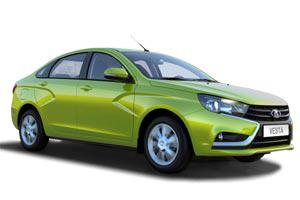Technical specifications
| Clear list | Hyundai i20 (2014-2018) | Lifan X50 |
| Totals | Hyundai i20 (2014-2018) 1.2 (84 PS) × | Lifan X50 1.5 × |
| Mark | Hyundai | Lifan |
| Model | i20 (2014-2018) 1.2 (84 PS) | X50 1.5 |
| Year | 2014-2018 | 2014 |
| Number of doors/seats | 5/5 | 5/5 |
| Body type | Hatch | Hatch |
| Unladen Weight | 965 | 1150 (1175) |
| Gross Weight Limit | 1680 | 1525 (1550) |
| Top Speed, km/h | 170 | 170 (160) |
| Acceleration 0-100 kph | 13 | 11 (11) |
| Minimum turning radius, m | 5.1 | 4.8 |
| Cargo Volume, min/max, L | 326/1042 | 280/570 |
| Dimensions specifications, mm | Hyundai i20 (2014-2018) 1.2 (84 PS) × | Lifan X50 1.5 × |
| Length | 4035 | 4100 |
| Width | 1734 | 1722 |
| Height | 1474 | 1540 |
| Wheelbase | 2570 | 2550 |
| Front/rear Track | 1520/1519 | - |
| Ground clearance | - | 185 |
| Engine specifications | Hyundai i20 (2014-2018) 1.2 (84 PS) × | Lifan X50 1.5 × |
| Type | petrol Injection | petrol Injection |
| Displacement, cm3 | 1248 | 1498 |
| Compression ratio | 10.5 | - |
| Number and arrangement of cylinders | 4 cylinders, in-line | 4 cylinders, in-line |
| The diameter of the cylinder x stroke, mm | 71х78.8 | - |
| Number of valves | 16 | 16 |
| Power, hp/rpm | 84/6000 | 103/6000 |
| Max torque, Nm/RPM | 122/4000 | 133/3500-4500 |
| Transmission specifications | Hyundai i20 (2014-2018) 1.2 (84 PS) × | Lifan X50 1.5 × |
| Gearbox | 5-speed manual | 5-speed manual / CVT |
| Drive Type | Front wheel drive | Front wheel drive |
| Suspension specifications | Hyundai i20 (2014-2018) 1.2 (84 PS) × | Lifan X50 1.5 × |
| Front | MacPherson strut | MacPherson strut |
| Rear | Dependent suspensions | Dependent suspensions |
| Tire Size | 195/55 R16 | 185/60 R15 |
| Disk | 4x100 ET45 d54.1
| 4x108 ET45 d65.1
|
| Brakes specifications | Hyundai i20 (2014-2018) 1.2 (84 PS) × | Lifan X50 1.5 × |
| Front | Ventilated discs | Ventilated discs |
| Rear | Discs | Discs |
| Fuel consumption specifications, L/100 km | Hyundai i20 (2014-2018) 1.2 (84 PS) × | Lifan X50 1.5 × |
| City | 6.6 | - |
| Highway | 4.2 | - |
| Combined | 5.1 | 6.3 (6.5) |
| Fuel | 95 | 92 |
| Tank, L | 50 | 42 |
| Clear list | Hyundai i20 (2014-2018) | Lifan X50 |














